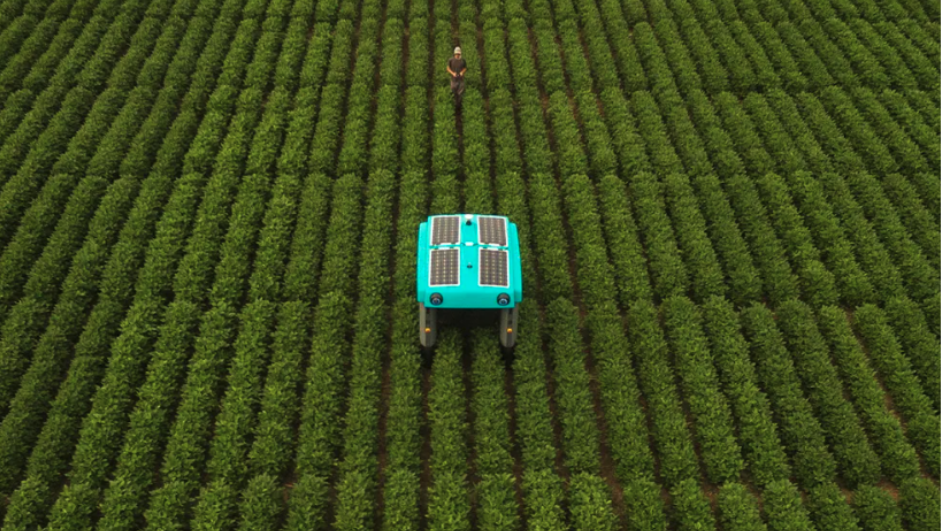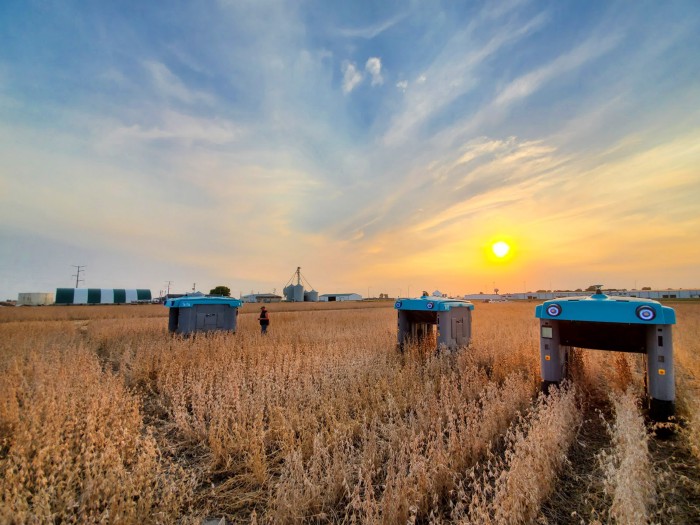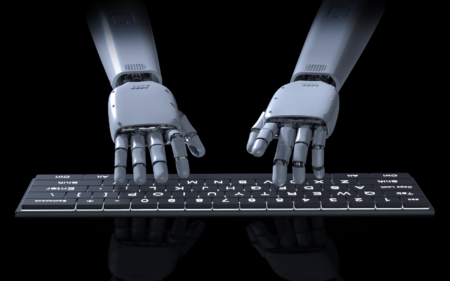We regularly report on all of the advancements of tech in an ever-changing industry. But, how will most of it help drive sustainability on our planet? That’s exactly what Google’s parent company Alphabet’s X lab is working on with its new agriculture venture.
Officially named Mineral, the project focuses on advancing technology in the agriculture industry to help increase sustainable farming. That means applying a variety of hardware and software to figure out exactly what plants need to grow optimally while using as little resources like land, water and nutrients as possible.
The Mineral buggy
Now, Mineral has revealed a farming bot that they are calling a plant buggy. It’s got proprietary tech and software that gives it the ability to study crops, soil and other environmental features. This data can be used by producers, biologists and plant breeders to find out how they can optimally grow that crop in the long run.
“The team then uses the data collected and combines it with satellite imagery and weather data to create predictive models for how the plants will grow using machine learning and other AI training techniques,” The Verge explains what happens to the data.
 This buggy has been tested at different sites in the US on a variety of crops, from strawberries to soybeans and melons. The point here is to collect as much data as possible. On a variety of crops.
This buggy has been tested at different sites in the US on a variety of crops, from strawberries to soybeans and melons. The point here is to collect as much data as possible. On a variety of crops.
What makes this particularly interesting, is that Mineral plans to test its plant buggies in South Africa, along with a few other countries. It’s an interesting take, if you consider South Africa is one of the biggest grain producers in the world and is currently in an almost two-year-long continuous drought. Food security is an issue, and to grow more sustainably, we need less thirsty crops. Maybe Mineral can help figure that out.
“By combining data collected from the field, like plant height, leaf area and fruit size, with environmental factors like soil health and the weather, Mineral’s software tools can help breeders understand and predict how different varieties of plants respond to their environments. By mapping and imaging plants in the field, growers can troubleshoot and treat individual plants instead of entire fields, reducing both their costs and environmental impact. Tracking how the plants are growing over time can help growers predict the size and yield of their crop, enabling them to make better yield projections,” the Mineral team explains on its new website.
It’ll be interesting to see how the buggy can help improve food and crop sustainability in a country that’s a major world-feeder. Environmental factors may make it harder for farmers to grow certain crops, but it’s also made some of our crops the hardiest available, and our farmers some of the most industrious. Lucky for us, however, the buggy runs off solar power — and we’ve got buttloads of that going around in SA.




